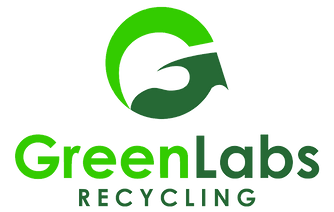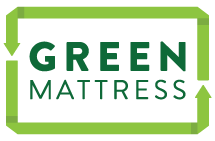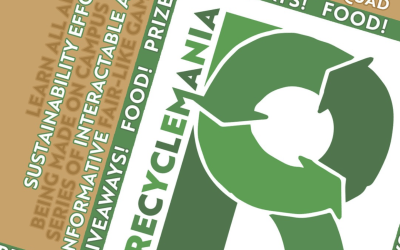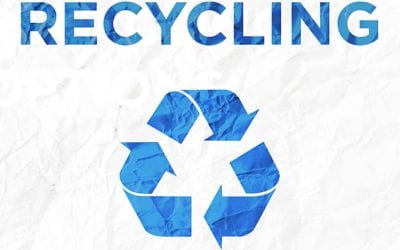Materials & Recycling
Boston campus accomplishments
%
of our total waste was recycled
%
of our total waste was composted
%
of our total waste was diverted from disposal
%
of our construction waste was diverted from disposal
Boston campus uses multi-stream recycling
To enhance efficiency and improve recycling participation, we are evaluating a potential shift to single-stream recycling. Stay tuned for updates!
Mixed Paper
placed in separate recycling bins
co-located with trash containers
Glass / Aluminum / Tin / Plastic
placed in separate recycling bins
co-located with trash containers
Cardboard
collected in larger hampers located at residential recycling rooms & central areas, or collected by cleaning staff in academic areas
Recycling is real
100% of Northeastern’s Recycling is delivered to Casella’s Material Recovery Facility, or MRF, in Charlestown, Massachusetts. There, recyclables are sorted into individual commodities (see diagram below), baled, and delivered to recycling processors. The Processors then grind, shred, and/or pulp the recyclables to be utilized in the manufacturing process for new products. Committing to recycling is committing to closing the loop on a once wasteful production infrastructure.

Recyclopedia
Featured recycling posts
Can I recycle it? Check the Recyclopedia
Move-Out: A Season of Cross-Departmental Collaboration
Move-Out: A Season of Cross-Departmental Collaboration Photo by Matthew Modoono/Northeastern UniversityAmid the budding cherry blossoms of April, students at Northeastern University’s Boston campus pack their suitcases and part with friends before catching flights and...
RSA Vice President of Advocacy Taha Adams Educates Students about Recycling
RSA Vice President of Advocacy Taha Adams Educates Students about RecyclingWhile students and faculty have returned to campus after the COVID-19 pandemic, many events have not yet resumed, according to Taha Adams, a third-year student and current Vice President of...
Students and Faculty learn about Northeastern Recycling Practices
Students and Faculty learn about Northeastern Recycling PracticesStudents are used to lugging their recycling and waste to the bottom floor of their building to be recycled. They throw it in a giant bin and walk away, which is when Sue Higgins’ Materials and Recycling...
Materials and recycling programs
Jump to Section
Recycling Quick Guide
Recycling
Northeastern’s multi-stream recycling system reduces contamination and ensures a high-quality recycling stream.
Multi-Stream Recycling
Northeastern’s multi-stream recycling program is an effective approach to divert recyclables from disposal by ensuring recycled materials are correctly sorted and free of contamination. Learn more about what can and can’t be recycled:
Mixed Paper_______________________placed in separate recycling bins co-located with trash containers
|
Glass / Metal / Plastic_______________________placed in separate recycling bins co-located with trash containers
|
|
Suitable Recycling Materials
Glass Bottles & Jars
All glass bottles and jars can be recycled. Glass containers should be emptied and rinsed or wiped clean of food residue, with the lid placed back on the jar. Paper labels can remain on containers.
Please note that other types of household glass such as candle jars, vases, drinking glasses, or picture frame glass cannot be recycled in our program.
Food & Beverage Cans
All metal food and beverage cans can be recycled, along with aluminum foil and disposable aluminum pans. Items should be emptied and rinsed or wiped clean of food residue. Metal lids can be placed inside cans with the can gently crimped to keep the lid inside. Paper labels can remain on cans.
Plastic Containers
Forget what you learned about the recycling triangles (and plastic resin codes) and focus on the shape of the container! Plastic containers that are in the form of bottles, jars, jugs, or tubs can be recycled. All items should be emptied and rinsed or wiped clean of food residue, and the lid should be put back on the container.
Please note that clear plastic cups can be recycled with containers, but all liquid/ice should be poured out and the lid/straw removed and disposed.
Black plastic containers should be disposed of as trash.
Mixed Paper
Paper that is clean and dry, with minimal food or liquid contact, is accepted for recycling. This includes newspaper, magazines, paper bags, copy paper, office documents, folders, envelopes, food boxes (e.g., cereal, cracker, and snack boxes) paper towels and toilet roll tubes, and soft-covered books. Paper clips and staples are OK, but no three-ring binders, spiral notebook binders, or file folders with metal hangers. Envelopes with plastic windows are OK, but no plastic or padded shipping envelopes. Hard-cover books require special handling to be recycled. If you have hard-cover books, please submit a work request for a separate pickup.
Please note that paper plates, paper cups, napkins, paper towels or tissues are not recyclable.
Cardboard
Cardboard boxes, and pizza boxes are accepted with cardboard recycling. Cardboard boxes should be emptied and flattened with all packing materials removed. Pizza boxes should be completely empty with no food, napkins, condiment packets, or plastic pizza savers. Small amounts of grease and cheese residual is OK.
No Food or Liquid
Residual food and liquid contaminate other recyclable materials and can send an entire container of otherwise suitable recyclables to the trash. Please empty liquids out of containers (including ice), and rinse or wipe away food residue.
No Plastic Bags or Film Plastic
This includes plastic or padded shipping envelopes, bubble wrap, wrappings around cases of water bottles or other packages, and latex gloves. Plastic bags and film plastic are the most common and most problematic contaminants in recycling. The plastic gets tangled around recycling machinery and needs to be manually cut out of the equipment, posing a risk to workers and slowing down the recycling process. If you collect your recycling in a plastic bag, please empty all items out of the bag and into the collection bin. Plastic bags can be returned to many grocery and retail stores for recycling, or should be put in the trash.
No Styrofoam
Styrofoam requires special handling to be recycled, and is not collected as part of our regular recycling program. Please keep all Styrofoam out of the recycling bins. This includes Styrofoam packaging, coolers, packing peanuts, and other types of foam. Styrofoam should be thrown in the trash or saved for specialty collection events that occasionally occur in the community. Did you know – if you leave Styrofoam packaging inside a box, the entire box gets trashed at the recycling facility (including the valuable cardboard).
No Drink Cartons
Drink cartons like the ones used for almond milk or aseptic packaging like those used for shelf-stable broths contain multiple layers of materials, including fiber, plastic, and sometimes aluminum, and require special processing equipment to separate the layers and recover the fiber for recycling. These paper mills are limited and not located in the Northeast region of the U.S. Our regional recycling facilities cannot cost-effectively recover and ship these cartons for recycling. Please put all drink cartons and aseptic packaging into the trash.
No Shredded Paper
If you need to shred documents for confidentiality, please consider contracting with a data shredding service. Paper that is collected on campus already shredded cannot be recycled, because it cannot go through the sorting process at the recycling facility. This shredded paper is disposed of. Because shredding services manage only paper (i.e., no sorting required), the paper can be baled and recycled when shredded through the service.
No Packing Materials
Cardboard boxes should be emptied and flattened for recycling, with all packing materials removed. Packing peanuts, Styrofoam, twist ties, etc. should be removed and disposed. The exceptions are craft paper used as a filling, which can be recycled on campus, and bubble wrap/film plastic that can be returned to collection locations at local stores.
No Hot Coffee Cups or Colored Drink Cups
Most hot beverage cups made of paper have a thin plastic coating, which impacts the recycling process. Most colored drink cups (e.g., Solo cups) are made of low-grade plastic that does not currently have established secondary uses. Paper and colored drink cups should be put in the trash. Clear plastic cups are recyclable, but need to be empty and the lid and straw should be removed and put in the trash. If the cup is heavily soiled and cannot be rinsed or wiped clean, please put it in the trash.
Please note that iced coffee plastic cups should be emptied and put into the recycling stream.
Jump to Section
Composting Quick Guide
Composting
Northeastern University has been diverting food waste from disposal since 2006, with a composting program that started in collaboration with partners in residential dining. In 2020, the program was expanded to include all retail dining locations. Since then, the program has continued to grow to meet the needs of the campus population. Over the past few years, access to food waste collection has been added to selected residence halls and at six outdoor, publicly accessible locations.
The Importance of Reducing Food Waste
Reducing food waste provides meaningful environmental and economic benefits, and when coupled with food rescue and donation opportunities increases food security. The Massachusetts Department of Environmental Protection has recognized the benefits of food waste reduction and diversion and implemented a Commercial Food Materials Disposal Ban (Organics Ban). The Organics Ban applies to businesses and institutions that generate more than one-half ton of organic/food waste per week, which includes Northeastern University’s Boston campus. Compliance measures include sending separated food waste to an anaerobic digestion facility or to a composting facility, among other options.
What is Composting and Anaerobic Digestion?
Composting and anaerobic digestion are two methods to divert food waste and other organics from disposal, both of which process food waste into beneficial products.
Composting is an aerobic process of decomposition of organic matter. It requires oxygen, and results in a nutrient-rich soil amendment called compost. Composting can be performed in an enclosed container or in open piles, and requires turning or blending the material to maintain suitable moisture, temperature, and aeration.
Anaerobic Digestion occurs in a sealed, enclosed vessel called a digester, and operates in the absence of oxygen. The process generates a methane-rich biogas that can be used as renewable energy, along with solid and liquid byproducts called digestate that can be used as soil amendments.
Northeastern’s Boston Campus Diversion Approach
Northeastern currently diverts landscaping waste to composting and food waste to anaerobic digestion. These selected diversion methods are based on the proximity of processing facilities to the campus, the capacity and operational performance of processing facilities, cost, and other contractual considerations.
Food waste generated on campus is collected by Casella Waste Systems and delivered to the CORe facility in Charlestown, MA. CORe is a patented, innovative process that recycles pre- and post-consumer food waste into an organic slurry. The prepared slurry is subsequently screened to filter out contaminants such as plastic, packaging material, utensils, and other non-organic materials that could negatively impact downstream processing. The slurry is then delivered to a nearby anaerobic digestion facility, Greater Lawrence Wastewater Treatment Facility, and converted into renewable energy and a soil amendment.
What is Acceptable in Composting?
The food waste collection program on the Boston campus is designed to accept food waste (raw, cooked, and spoiled items) along with limited other non-food compostable materials such as unlined, food-contact paper/fiber products. No plastic and no cutlery is accepted in the program, even if it is labeled as compostable.
| Yes | No |
|
Fruits and vegetables Pasta, grains and bread Dairy, including yogurt and cheese Eggs and eggshells Meat and seafood, including small bones Prepared foods like desserts and casseroles Solidified cooking oils, grease, and fat Coffee grounds/filters and tea bags Napkins and paper towels Unlined paper plates Unlined fiber-based to-go containers |
NO Plastic, even if labeled “compostable” NO Cutlery, even if labeled “compostable” NO Coffee cups, even if labeled “compostable” NO Glass or metal NO Produce stickers NO Cartons (milk, juice, ice cream) NO Paper soiled with chemical products NO Paper or tissues soiled with bodily fluid NO Paper with plastic/wax lining or coating NO Biodegradable packing peanuts NO Cat litter or dog/cat waste |
Boston Composting Locations
Composting services are included at all campus dining facilities, retail establishments, selected residence halls, and at six outdoor, publicly accessible, drop-off locations.
- Dining Facilities. All residential dining facilities have composting available in the back-of-house, for food scraps generated from meal preparation and for plate-scrape waste at the dishwasher stations. United Table at International Village also has plate-scrape stations on the dining room side for use by students and other customers.
- Retail Eateries. All retail eateries on campus have access to composting for back-of-house operations, e.g., for food scraps generated from meal preparation, coffee grounds, and uneaten food not suitable for consumption. The university is exploring options to add front-of-house food waste collection in the dining room areas of selected retail locations on a pilot basis as well.
- Outdoor Drop-off Locations. There are six (6) publicly-accessible outdoor compost containers located throughout campus. These drop-off locations are intended to be used by campus faculty, staff, students, and guests while on campus, and provide an opportunity for students that do not have composting in their residence hall to participate in the program.
- Residence Halls. Selected residence halls have composting available in the waste/recycling room located on the first floor of the building. This is a pilot program that is being evaluated for performance and logistical efficiency. The locations were selected based on the style of the rooms (i.e., apartment-style residence halls offering in-unit kitchens), the ability to efficiently service the locations on a regular basis, and the availability of suitable space for materials management. The following residential locations currently have composting available
-
- East Village
- West Village A
- West Village B
- West Village C
- West Village E
- West Village F
- West Village G
- West Village H
- Willis Hall
-
Composting Tips for Residence Halls
If you live in a residence hall that offers composting, you are encouraged to separate your food waste from other waste and recycling and utilize the composting tote located in the waste/recycling room for the food waste. Separating food waste for composting is good for the environment, and helps Northeastern establish more sustainable operating practices.
Composting Tips:
- Nearby each food waste collection tote is a wall-mounted bag dispenser. These compostable biobags can be taken as needed and used to collect food waste.
- Every few days, or more often if the bag is full, unsightly, or generating any odors, bring the biobag to the waste/recycling room and drop it in the food waste tote.
- Commercially available counter-top bins are widely available; however, any type of tub or small container can also be used to collect and temporarily store food waste.
- Line the bin or tub with a biobag, and empty it on a regular basis. Consider storing the container or biobag in the fridge or freezer to reduce odor or pests.
If you do not have a composting tote in your residence hall, you can still collect food waste and bring it to one of the outdoor composting bins. Biobags are available upon request at the Curry Crossroads Information Desk on the lower level of Curry Student Center (near the main entrance to the Bookstore).
Composting Opportunities for Academic/Administrative Offices
Many academic/administrative offices on the Boston campus have expressed interest in separating food waste for composting from in-office kitchenettes. This is a great way to support sustainability goals and reduce waste. While current resources and infrastructure do not support composting within every building on campus, please take advantage of the outdoor, publicly-accessible composting bins located across the campus. Best practices include identifying an office champion to implement and monitor your program, and removing food waste from the office on a regular basis. Guidelines for setting up a small office collection program are available in the link to the left. The PREF Sustainability team can also be a great resource for additional information (sustainability@northeastern.edu).
Event Composting
Event composting is challenging, due to the large number of events on campus, the numerous locations where events are held, and the varied timing of events. Without significant monitoring and hands-on coordination by event planners, event composting has generally produced contaminated material not acceptable in our composting program. These challenges need to be resolved before the University can consider implementing event composting.
The PREF Waste & Recycling team has been piloting event composting on a limited, case-by-case basis, when circumstances are feasible and favorable for a successful collection. Generally, this means an event that is expected to produce mostly food waste and not primarily service ware, and one for which the event planners are committed to implementing operational practices for the event that are likely to lead to success (e.g. posting signage, announcing what is compostable, and actively monitoring the bins throughout the event).
Jump to Section
Special Items Quick Guide
Specialty Items
In addition to commonly recyclable materials, many items including batteries, and electronics can be recycled with special handling
Electronics
All electronic assets must go through the asset disposition process. This includes computers, monitors, laptops, tablets, phones, printers, scanners, fax machines, audio/visual equipment, and lab equipment.
Please fill out the Asset Disposition Form to begin this process.
Once the form is submitted, the Requestor’s supervisor will receive an automated email to approve the request. After a review by Accounting and other departments, a work request will be automatically generated authorizing Facilities to collect the equipment for recycling/disposal. The Requestor does not need to submit a work request and does not need to contact OIS to coordinate the collection or arrange for data to be wiped.
All items picked up are temporarily stored in a secure area until collected by our vendor. Our vendor wipes all data-bearing items and provides evidence to the University documenting the data destruction process.
- Tip #1: Do you have multiple items for collection? You can attach a list of assets to the asset disposition form, rather than listing each item individually.
- Tip #2: Do you need a hamper to temporarily store your electronic items pending collection? Submit a work request to Recycling to have one or more hampers delivered for temporary use.
- Tip #3: Keyboards, mice, speakers, cords, and cables can be recycled along with larger electronics. Please help us recycle these items by keeping them separate from trash.
Ink jet and toner cartridges
Recycling ink jet and toner cartridges is easy:
- Remove new cartridge from the box, and place the used cartridge in the box
- Remove and recycle any return address labels you find inside the box
- Download the recycle ink and toner cartridges label HERE
- Attach the label to the box and tape up the box
- Leave the box in your usual pick-up area for mail services
You can also arrange pickup of empty ink jet and toner cartridges by submitting a Work Request.
Batteries
Northeastern recycles batteries of any size. Bring your batteries to the disposal bins located on the first floor of 716 Columbus Place, or schedule a pickup by submitting a Work Request
Lightbulbs
All used lightbulbs are recycled, including those from dorms or those replaced by Building Services staff. If you need to replace a lightbulb, please submit a Work Request.
Textiles
Textiles are banned from disposal in Massachusetts. If you have clothing, shoes, bags, and other items that are in good condition and suitable for reuse, please bring them to a local thrift store or save them for one of the many student-led clothing swaps and collection drives that occur throughout the year. The student group Trash2Treasure collects items at the end of every semester for reuse and recycling, and is a great option. Alternately, you can submit a work order to have Facilities collect your clothing and other textiles (e.g., linens, drapes, tablecloths, etc.) for recycling. All types of textiles can be recycled, even if stained, ripped, missing buttons, or mismatched. The items only need to be clean and dry. If you have Northeastern-branded items that require recycling and not reuse, the Facilities Waste and Recycling Team can help to manage those properly.
Books
If you have a small number of paperback books, you can recycle them in the paper collection bins that are located across campus. If you have a large number of books (more than a dozen) and/or if you have hardcover books, please submit a work request to Facilities and we will help you to manage your books. Hardcover books need to have the covers and bindings removed before they can be recycled. If possible, we will arrange for a donation of the books if they are suitable for that purpose. Interested in donating books on your own? More Than Words (242 East Berkeley Street, Boston) accepts drop-off book donations or will schedule a pickup for donors with eight or more boxes of books.
Shredded paper
If you need to shred documents for confidentiality, please consider contracting with a data shredding service. Shredded paper cannot be recycled through our usual recycling process, as it cannot go through the sorting machinery at the recycling facility. However, data shredding services manage only paper, without the need for sorting, so the shredded paper can be baled and recycled once processed by the shredding company.
Office clean outs
Office clean outs are a significant source of trash. Whether it is a smaller clean out (e.g., one faculty member retiring) or a larger clean out (e.g., an entire department moving to a new office suite), it is important that materials are properly sorted for recycling and disposal. If you are tasked with an office clean out, please submit a Work Request to Facilities and we will work with you to make sure you have the proper bins for separating trash and recycling, and are following the necessary procedures for disposition of electronics and equipment.
Laboratory Hazardous Waste
Hazardous waste material for laboratories is handled through the Office of Academic and Research Safety. All hazardous waste pickup requests must be submitted through BioRAFT’s Hazardous Waste module and labels can be picked up at The Office of Academic and Research Safety (OARS).
Boston campus partnerships










